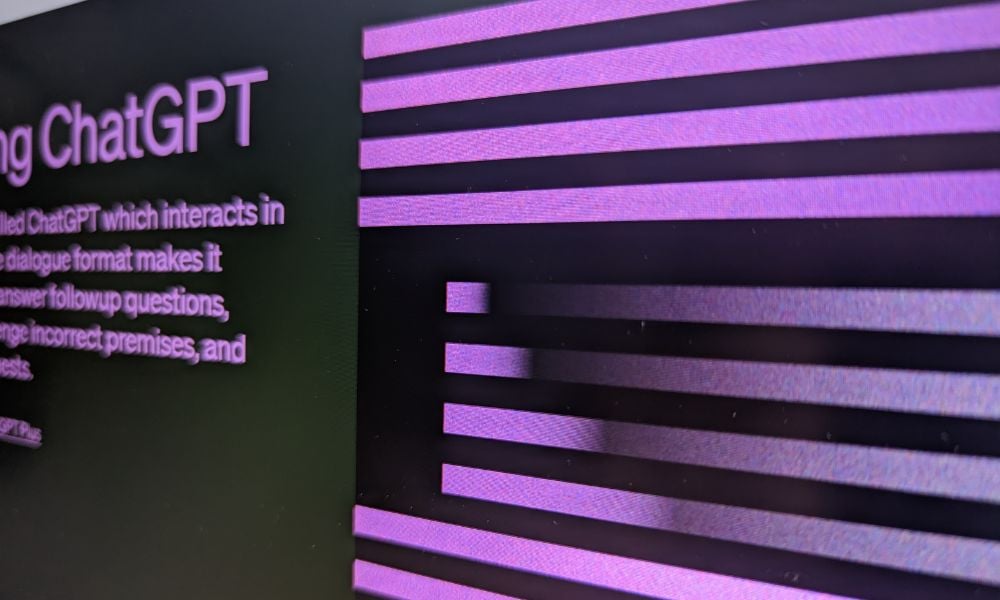
'Educating employees… will be critical as we go forward with the intention of responsible and ethical AI'

Generative artificial intelligence (AI) can be a big part of the recruitment process going forward, judging by the results of a recent survey.
Overall, 80% of HR professionals have used or are considering using generative AI in the hiring process, reports Greenhouse, a provider of hiring operating systems.
And 62% believe that AI can help them hire the best candidate.
However, many HR professionals, and even candidates, still have contrasting views around the technology.
Among HR professionals, 37% strongly or somewhat disagree that AI will reduce bias in the hiring process, while 28% feel the opposite. Over a quarter (27%) of candidates believe that AI leads to more bias in the hiring process.
Also, one-third of HR professionals (33%) believe that AI will help organizations reach their DEI goals, yet 31% strongly or somewhat disagree.
Around half of HR respondents (48%) strongly or somewhat agree with their company using AI to screen job applications, but one-third (33%) disagree. Similarly, over 35% of candidates disagree with the use of AI in job application screenings. However, 35% said using AI in the hiring process is fair game since companies are using AI to sort through resumes.
"While AI is a beneficial tool for automating tasks and increasing efficiency, it shouldn't be used in its present form to make human-based decisions like hiring,” said Henry Tsai, VP of product and design at Greenhouse.
“Our report found that HR professionals realize this and want to implement AI thoughtfully to ensure the hiring process is fair and equitable. As companies begin using AI, it's critical that they are clear and transparent about how they are using it while being able to monitor and identify applications that could have a biased impact on a hiring decision.”
One in five HR leaders have implemented generative AI in their work, while another 9% said they are carrying out pilots for it, according to a previous Gartner report.
Amid all these contrasts, many HR professionals want more opportunities to learn generative AI, as well as policies surrounding it, found Greenhouse’s survey of over 2,700 candidates in the United States, the United Kingdom, Germany, and Ireland, and 100 HR professionals.
Over eight in 10 (84%) HR professionals believe that there should be more education and training in the workplace regarding AI tools.
HR leaders' lack of understanding on generative AI could be the reason why the emerging technology's use across HR departments remains limited, according to a previous study.
And 62% of HR leaders believe that there should be more laws specifically governing AI tools to prevent bias in the recruitment process, reported Greenhouse.
Recently, New York City’s law regulating the use of automated employment decision tools (AEDTs) – such as AI in – making hiring decisions took effect.
Transparency around the use of generative AI is also a key issue, according to Greenhouse: over 38% of HR professionals believe that if a candidate has used AI in the application and hiring process, they should disclose that to the company they are applying to. Almost 50% of candidates say that companies should do the same.
"Educating employees not only on the scope of how AI can be used, but on the ethical considerations of it, like privacy, transparency, and bias, will be critical as we go forward with the intention of responsible and ethical AI,”said Lani Phillips, vice president of channel sales at Microsoft.
To get the most from generative AI, employers must educate and empower workers and evaluate its impact, said Glen Cathey, SVP and consulting principal for talent advisory and digital strategy at Randstad.
“Given the seriousness of potential harm, it is imperative that companies provide guidance on the responsible and acceptable use of generative AI while reaping its benefits,” he said.
The following tips will help employers in this regard, he said: